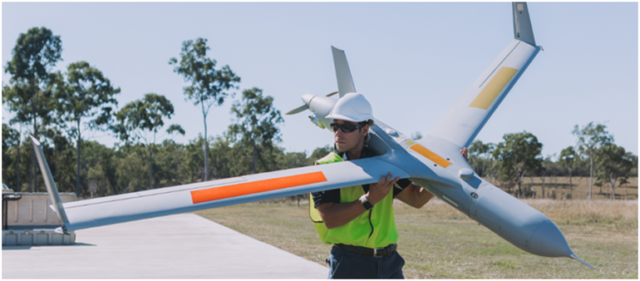Boeing has announced Queensland will be the home for its new autonomous systems development program, with the three-year “rapid innovation program” expected to see the aerospace giant develop autonomous systems capability to increase the independent operation of air and sea vehicles.
During a press briefing , Boeing Autonomous Systems vice president Chris Raymond said autonomy is expected to enter both the company’s existing and new products, and explained the partnership with the Queensland government will allow the regulatory creases to be ironed out in unison with the development of new tech.
The program, the biggest investment the company has made in autonomous systems outside of the United States, will focus heavily on the regulatory side, and has been built on the existing partnership the company has with the Shell-operated, Queensland government gas initiative.
“We’ve been really excited about what we’ve been doing in Queensland … it’s really been a great effort I think, because for anything to advance, it needs resourcing,” Raymond explained.
“Apart from the financial investment, one thing we’ve really found here is all the elements of innovation: The university ecosystem, the small to medium-sized enterprise business, the technical providers we have in the supply chain, and then our own Boeing people here.
“We’ve really found it a great place to combine resources, insights, know-how, and a really like-minded focus for advancing autonomy in Queensland.”
Raymond expects the program to further the relationship Boeing has with security forces and Defence.
Also expanding on the partnership was director of Boeing Phantom Works International Shane Arnott who said the key part of the program, in layman’s terms, is to realise autonomy.
“To take that step from remotely-piloted to autonomous systems is creating the brain on board, and then the ability to talk to the systems or to create the voice for the systems to talk to each other, which is a combination of software and communications systems to enable mobile ad-hoc sort of networking capability,” he said.
“It’s all about how do you make a machine that can perceive its environment, react to stimulus by processing that information, and then communicate the outcomes from that and do that in not just a single system, but a team system.”
The company won’t be creating any new vehicles as part of this program, but rather developing systems and sorting out the regulatory requirements alongside it.
Autonomous systems were flagged by Raymond as a key growth area for Boeing.
About six months ago, Boeing organised a business specifically around autonomous systems where defence is concerned. According to Raymond, the company has invested in autonomy on the prediction that it will continue to enter the personal lives of individuals, professional products, as well as security and commercial ways of doing things.
Boeing has also ramped up a global effort around developing autonomous systems, with Raymond explaining autonomy and its associated technical elements around machine learning and artificial intelligence are expected to continue to advance.
“As an aerospace company, we’re on the leading edge, and need to stay on the leading edge of those advances as they relate to aerospace — and we view that from seabed to space,” he added. “We’ve really had a great experience developing a lot of technology already.”
According to Arnott, Boeing sees advantages in engaging in this work in Australia, in particular Queensland.
“This is the biggest investment we’ve made in autonomous systems development outside of the US and we’ve done that because of the advantages that we’ve been experiencing here in Australia — large country, low population density, progressive airspace regulator, first-class defence force, big and innovative resources industry,” he said.
In July 2016, the Queensland government announced a AU$1 million investment in remotely piloted aircraft technology, expected to benefit the LNG, agriculture, mining, energy, telecommunications, search and rescue, and environmental management industries.
In addition to the cash injection, the Queensland government has partnered with Boeing, in conjunction with Boeing subsidiary Insitu Pacific, Shell’s QGC project, and Telstra, to further the drone research.
Boeing established an Australian branch of Boeing Research & Technology (BR&T) advanced research and development unit in March 2008 to better support its businesses in Australia by providing a focal point for collaboration with research and development organisations including universities, private sector providers, the Commonwealth Scientific and Industrial Research Organisation (CSIRO), and the Defence Science and Technology Organisation.
Over the course of its 22-year relationship with the CSIRO, both Boeing and CSIRO have jointly invested more than AU$100 million into R&D in Australia.
The program will also complement the work undertaken by the Trusted Autonomous Systems Defence Cooperative Research Centre, taking research outcomes and developing them into “exportable commercial products” for the global autonomous market.
Source: ZDNet

